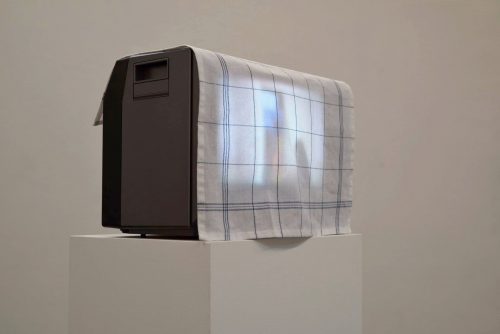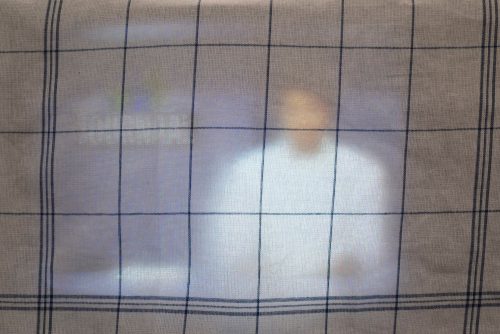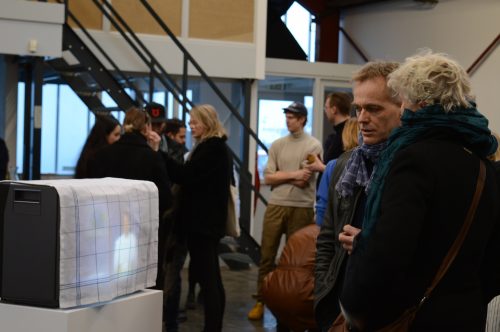

The television is an object that became a powerful window to the world and at the same time the ultimate form of passive entertainment and escapism. As a mass medium, it continues to reach billions of people today, not as an empty shell, but as limitless options and on-demand content which structure culture and representations of society. Although television can simply be turned off with the click of a button, we are unable to resist its allure and domination; by keeping it on, our focus shifts away from where we are and who we are with.
On display, the veiled, ‘80’s era television from Corine Aalvanger’s childhood refers to the personal readymade as well as recurring tensions between the old vs. the new and the ways that Calvinist work ethic relates to spectacle of capitalism. When the regularly scheduled 6’ o’clock news comes on, should one watch television to stay informed about current events or turn it off to spend time with family over dinner? If turning it off is not option, what would it mean to cover it instead? Would it somehow filter the content that came into the home, but not the message?

